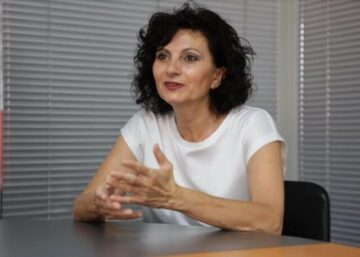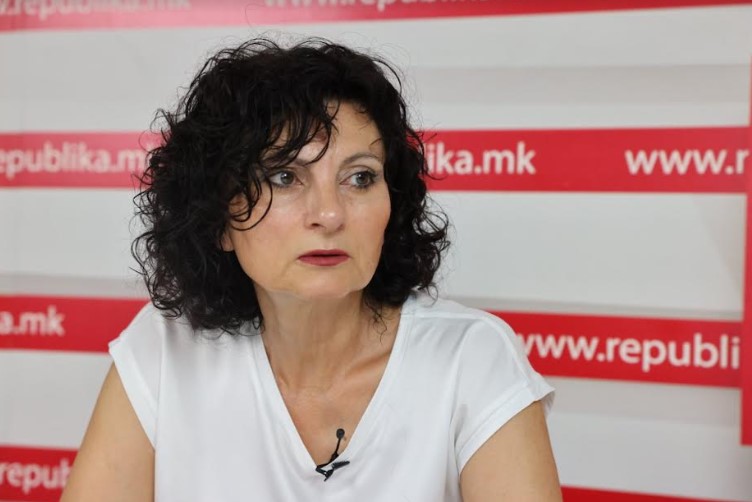Lately, I feel like the main character from the play Public Enemy, says the head of the State Corruption Prevention Commission, Biljana Ivanovska about the joint attacks on the institution from virtually everyone.
In the interview with Republika, she says that her team works professionally, impartially, independently, and with respect to the principles of integrity. Ivanovska points to a case named Trust, related to a businessman close to the previous government of VMRO-DPMNE.
“One criminal court sentenced him to custody through the duration of the process and decides that the businessman’s property was acquired by criminal activity. The businessman’s legal team complained to a higher court. In the interim period, another criminal court accepts the businessman’s property as bail. The businessman is released from custody and sells the entire property to another businessman, close to DUI. How did the judicial system allow this to happen?” Ivanovska asks.

The chief of anticorruption also comments on the comparisons between her institution and the erstwhile Special Prosecutor Office, which was dismantled after its head went to prison for corruption.
“Those are two completely different institutions. The State Commission was established in 2002, in accordance with the United Nations Convention, which stipulates the necessity of a corruption prevention body. This institution’s focus is on preventing corruption, not prosecuting it. We do not prosecute anyone. The public expects closure from us. That is also what Vice-PM Artan Grubi said when he was criticizing the institution – that we haven’t closed any case since we were established. We can’t close the cases, because our role ends with the investigation”.
Ivanovska also commented on the incineration of Grubi’s vehicle and why the Commission is not competent to investigate the case.

“We can’t start a procedure for this case, because the vehicle is not registered in the name of an elected official, in this case, Artan Grubi. As to why he used the vehicle, and why did it have visual and sound signalization – those questions should be answered by the Vice-PM for good governance. The Government adopted a Code of Good Governance and bragged about it, but it also has to implement it. The Vice-PM reprimanded Grubi, and it ended there. The question of the vehicle owner remained unanswered. We noted risks like this one a long time ago and insisted on the adoption of a law on property origin, imposing the obligation for the citizens not only to report their properties but also to state how they acquired them. That is the crucial control that could significantly aid the fight against corruption”.
Ianovska also commented on Grubi’s statement that the owner of the vehicle is his friend with 30 years of business experience, despite the fact that his friend is 35 years old.
“Belittling your own people is the lowest thing a person could do”, she responded briefly.

Ivanovska also explained the consequences of the latest huge affair with the citizens’ personal data controlled by the Civil Registry Office.
“Considering the fact that no one controlled the Ofice’s operations for decades, we asked the Agency for Protection of Personal Data to carry out extraordinary control. The results were astonishing: there are no logs for the entries, the data was kept on the servers, no one knows who was authorized to approach the data, the room where they were scanning the data had no security, the persons who fed the data to the servers were not accompanied by an authorized person from the Civil Registry Office. None of the rules or laws were respected, so we initiated a criminal procedure against the leadership and the employees of the Civil Registry Office”, Ivanovska explained, adding that no one knows the exact number at the moment, but millions of personal data entries are missing.
Asked about the Minister of Interior, Oliver Spasovski’s statement that there was no massive abuse, Ivanovska responded:
“An abuse is an abuse. No one can state with certainty the volume and the range of abuse, since there was no security and protection. It could have been one entry or tens of millions. No one can say where did that data end, except for the people who worked on it”.




Comments are closed for this post.